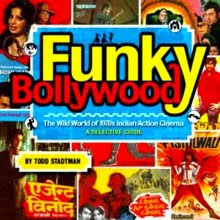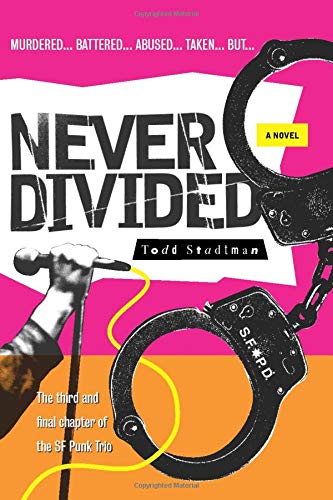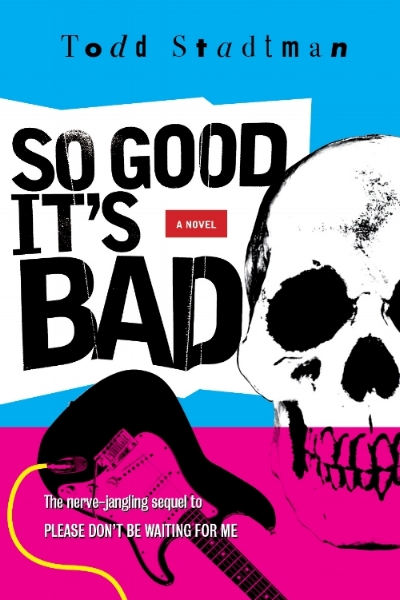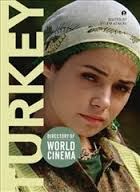It's a sad fact that Western horror cinema has produced no female creature as enduring as India's Nagin. The closest it has come are Jacques Fournier’s The Cat People, which only merited one sequel, and Hammer's The Reptile, which was one of the studio’s rare “one and done” monster films. The Bride of Frankenstein’s debut was also her swan song, although she did get an Aurora model kit out of the deal. By contrast, the Nagin, a poisonous snake given the form of a beautiful human woman, has been a part of Hindi cinema almost since its inception.
 As with most iconic beasties, the fixity of the Nagin’s image in the minds of her audience has allowed filmmakers to be fluid with both her meanings and representation. Take for example two of the most well-known versions of the Nagin’s tale in modern Hindi film, Rajkumar Kohli’s star-studded Nagin from 1976 and Harmesh Malhotra’s 1986 Nagina.
As with most iconic beasties, the fixity of the Nagin’s image in the minds of her audience has allowed filmmakers to be fluid with both her meanings and representation. Take for example two of the most well-known versions of the Nagin’s tale in modern Hindi film, Rajkumar Kohli’s star-studded Nagin from 1976 and Harmesh Malhotra’s 1986 Nagina.The story begins with young Rajiv (Rishi Kapoor) returning, after a long absence, to the palatial estate of his birth, where he is enthusiastically welcomed by his mother (Shushma Seth.) There is some talk of Rajiv having been sent to Europe as a child due to some kind of vague mental issue (chances are he was put under the charge of one of those wacky German psychoanalysts). Now he has returned to take control of the sugar plantation to which he is heir.
On a tour of the grounds, Rajiv is shown the ruins of a mansion that was once the family home. There he hears a ghostly female voice singing a haunting melody. He returns later and meets Rajni (Sridevi), a beautiful woman of mysterious origins who claims to have known Rajiv since they were both children. Rajiv is entranced by her and, because this is a Bollywood movie, falls in love with her before the day is through. He later announces to his mother his intention to marry Rajni, which scuttles her plan to marry him off to Vijaya (Roobini), who, if I followed this movie correctly, is Rajiv’s cousin.
You see, Rajiv has an uncle named Ajay Singh, who has acted as overseer of the plantation in his absence. Ajay Singh is also father to the now-heartbroken Vijaya. Unfortunately for Rajiv, Ajay Singh is played by Prem Chopra, which means that, in the unforgiving calculus of Hindi cinema casting, he is a rat bastard. Enraged at Rajiv for rejecting his daughter, Ajay Singh vows to obstruct Rajiv’s happiness in any way he can. When it comes time for him to sign control of the plantation over to Rajiv, he refuses to do so and rips up the agreement.(Ajay Singh’s plan was to swindle the family anyway, so this is really just a case of one plan dovetailing nicely into another.) Later, he learns that Rajiv has a file containing all the documentation he needs to prove his title. He sends wave after wave of grubby henchmen to steal the file, only to have each thwarted by the mysterious intervention of a cobra.
Around this time, an imposing shaman called Bhairon Nath (Amrish Puri) shows up at the family mansion with a retinue of orange-clad disciples. Bhairon Nath and Rajiv’s mother are apparently acquainted, and soon reveal themselves to have some kind of secret history together. Bhairon senses the presence of the Nagin and, upon seeing Rajni, demands that Rajiv and his mom banish her from the house. Rajiv responds by instead showing Bhairon and his entourage the door. Later when Rajiv is shot by Ajay Singh and hospitalized, Bhairon seeks revenge by dispatching a cobra to his bedside.
You have to feel sorry for Rajiv, seeing as he is on the receiving end of both Amrish Puri’s and Prem Chopra’s bad tidings. It is hard to imagine any filmi hero surviving such a villainous one-two punch. Sadly, I am unable to judge Rishi Kapoor’s performance as Rajiv due to my almost pathological inability to be moved by anything he does. All that I can say for him is that he serves as a good model for a number of cozy looking sweaters. I think this is partly due to Kapoor’s misfortune of having his career coincide with those of such exponentially more exciting actors as Amitabh Bachchan, Feroz Khan, and Vinod Khanna. In fact, my saying that makes me ponder just how great Nagina¸ an already good film, would be if Vinod Khanna were its male lead.
It also has to be said that an actor like Rishi Kapoor stands little chance of standing out when cast alongside a formidable pair of scene stealers like Amrish Puri and Sridevi. Puri is at the top of his game here, bringing all of his natural authority and presence to a portrayal as iconic as the one he would give as Mr. India’s Mogambo a couple of years later (and speaking of authority and presence, it only just occurred to me that Amrish Puri is India’s answer to Christopher Lee, and vice versa.) Sridevi, for her part, was a newly minted superstar at the time and earns the title, delivering a performance of fierce intensity. Her Nagin has both a soul and a conscience and, despite whatever plans she might have started out with, comes to dedicate herself to being the loyal protector of Rajiv and his family. It’s something of a reversal of the Kipling story “Rikki-Tikki-Tavi” with the cobra acting as the protector of the family rather than the threat against it.
In Puri and Sridevi’s hands, one gets the sense that the rivalry between Rajni and Bhairon goes back several lifetimes, with all of the accumulated enmity that would entail. As such, every meeting between them sees them matching each other blazing eye for blazing eye, flaring nostril for flaring nostril, and curled lip for curled lip. Bone shuddering oaths are exchanged while thunder roars and lighting flashes, eventually leading us to “Main Teri Dushman” (“I am Your Enemy”) a song and dance number that is, to me, the film’s inarguable highlight.
“Main Teri Dushman” provides a direct counterpoint to an earlier musical number in the film, “Balma Tum Balma Ho Mere Kali”, in which Rajni tries to woo Rajiv away from a dangerous engagement by distracting him with an erotic dance. But where “Balma Tum Balma Ho Mere Kali” is a song of seduction, “Main Teri Dushman” is a song of defiance. In it, Rajni delivers a fiery-eyed challenge to Bhairon’s attempts to control her with every thrust of her hip and insolent jut of her chin. Bhairon, meanwhile, circles her like a beast of prey, trilling away on his flute in a vain attempt to rein her in. Between them, they generate more of an air of combined sex and menace than in all of the love scenes between Sridevi and Rishi Kapoor combined.
I’m not going to spoil any more of the plot developments in Nagina, because I am going to enthusiastically recommend it to you. It has a couple of unforgettable performances, I story that is rewardingly complex without being convoluted, a tight script that is light on trivial digressions (well, there is a bit where Jagdeep tells some sub-Borscht Belt fat jokes about his wife, but we can’t ask for miracles), an appropriately hip-swiveling score by Laxmikant-Pyarelal in full tribal mode, and a lot of moody atmosphere. Bollywood rarely delivers genre cinema as pure as this. Watch it and be enchanted.

































































No comments:
Post a Comment